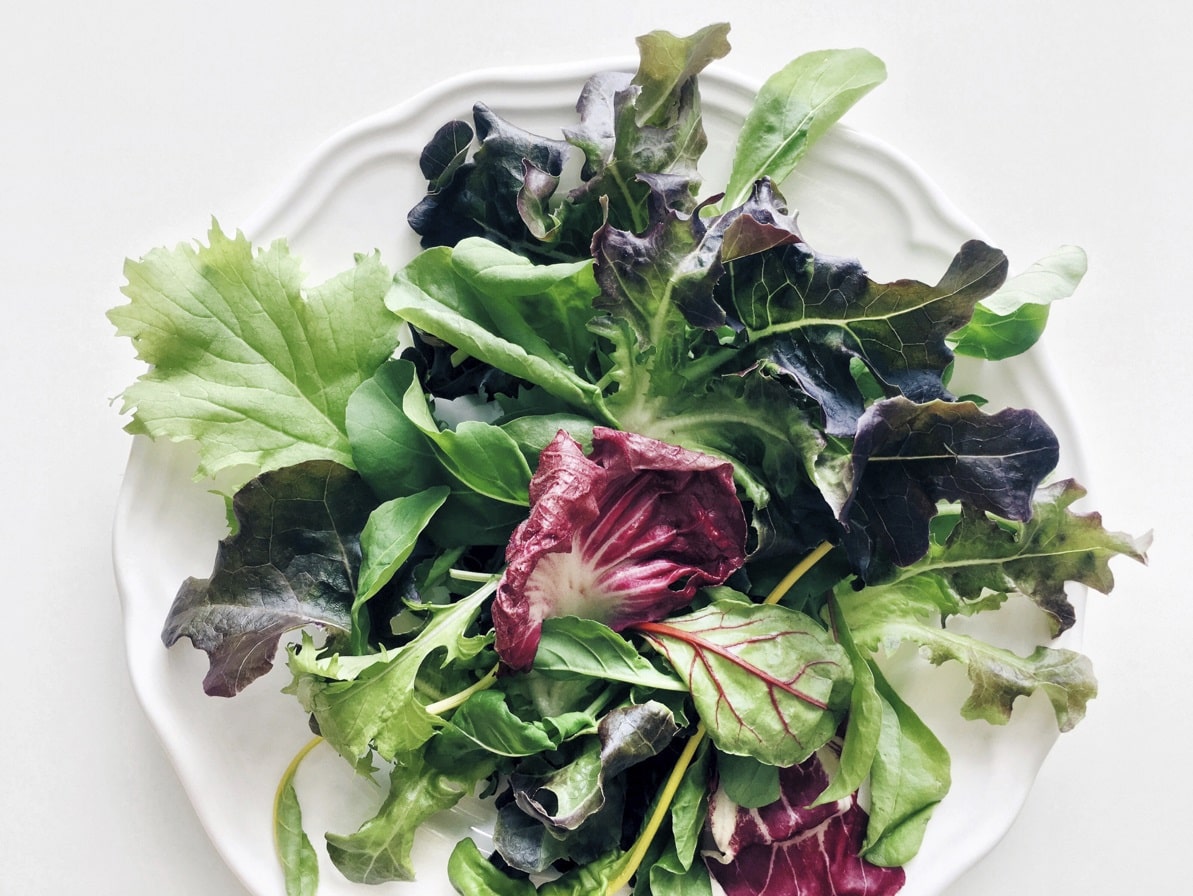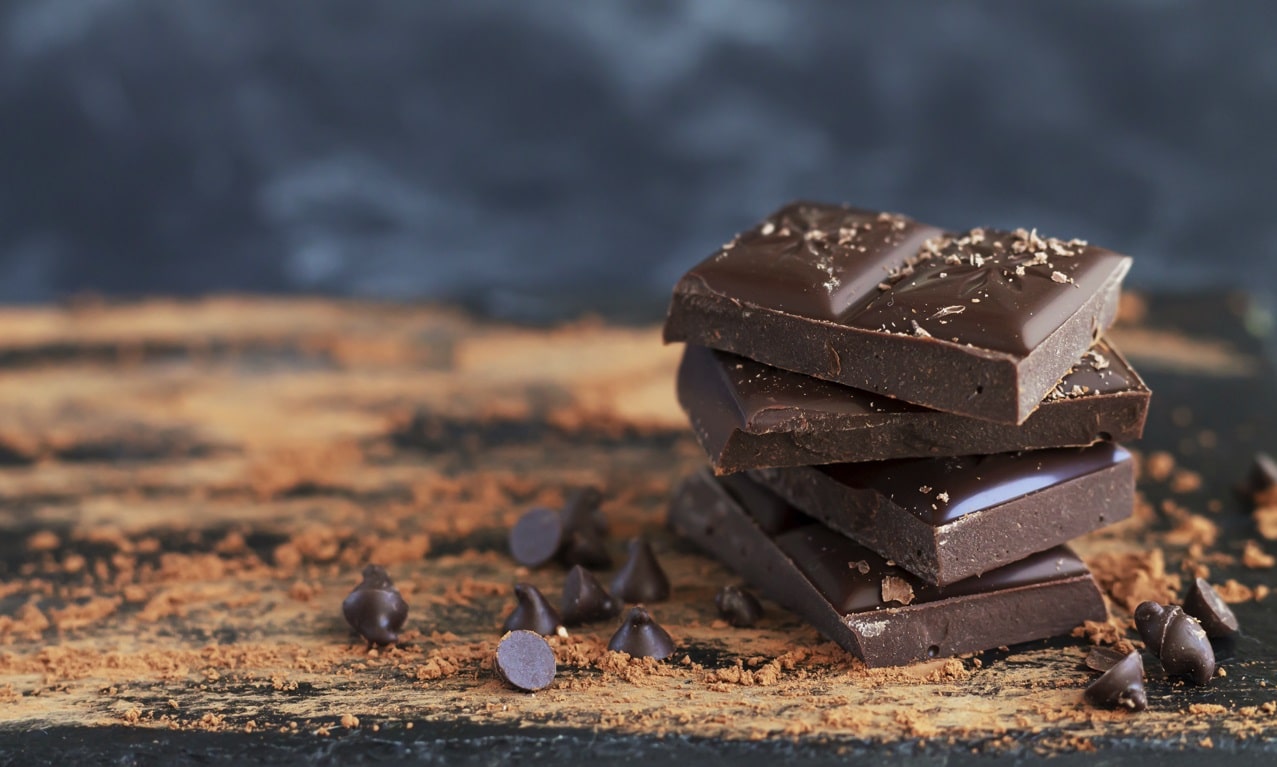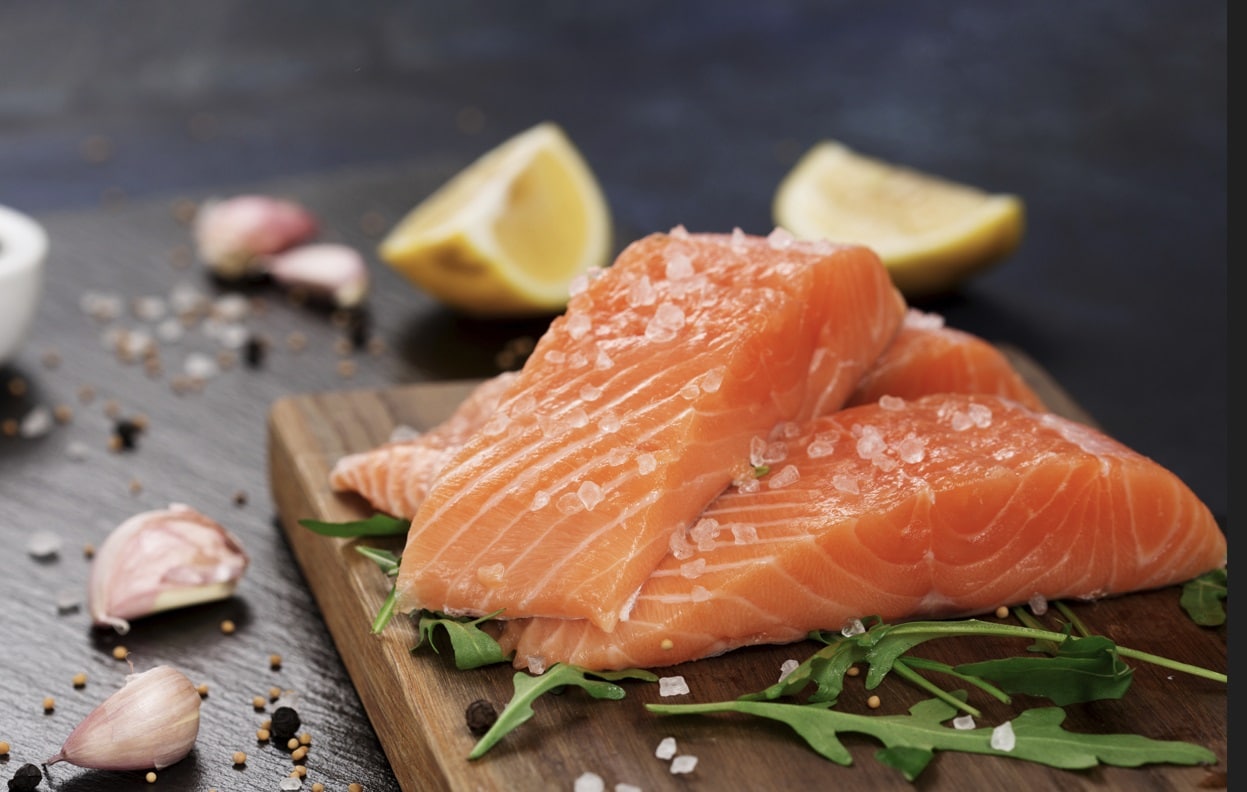No one wants to deal with blemishes, dark spots, wrinkles, dry patches or oily skin. To tackle these issues, most people address the problem from the outside with washes, creams and ointments. However, with a healthy diet for skin health, you can improve your skin from within.
Proper nutrition helps boost skin health and skin quality, the combination of the visual, textural and functional aspects of your skin. Maintaining skin quality with balanced nutrition is important. Your overall health depends on your skin’s ability to maintain hydration and protect your body from the environment. Healthy, clear skin also helps people look younger and more attractive.
This article shares advice from our dermatologists on nutrition for skin health. Follow these five tips:
1. Drink 8 cups of water a day to keep skin hydrated
Drink 8 glasses of water a day to help prevent wrinkles and inflammation and promote overall skin health.

To have luminous and glowing skin, the body must be well-hydrated. Water is vital to body well-being and proper function. When your body is dehydrated, it becomes easily inflamed and ages faster. Studies also show that drinking water has a significant impact on the physiology of the skin.
2. Eat a balanced diet full of vitamins and minerals to delay aging and keep skin strong
Good nutrition for skin includes vitamins and minerals to preserve elasticity and delay skin aging. A lack of vitamins and minerals can cause skin disorders, wrinkles, hyperpigmentation and poor overall health.

Get vitamins and minerals by eating fruits and vegetables rather than taking supplement pills. Your body absorbs the nutrients more easily when consuming whole foods. Add these important vitamins and minerals to your skin-healthy diet:
- Vitamin A is an antioxidant that prevents sun damage, helps oil glands work properly and assists with wound healing. Carrots are a great source of vitamin A.
- Vitamin B prevents skin aging by reducing inflammation and pigmentation. It also helps cells multiply, which regenerates the skin. Eggs, citrus fruits and avocado are good sources of vitamin B.
- Vitamin C is an antioxidant that protects the skin from free radicals. It reduces the risk of skin cancer, prevents wrinkles and promotes collagen production. Get your daily dose of vitamin C from raw tomatoes, citrus fruits, bell peppers, broccoli or strawberries.
- Vitamin D protects the skin from sun damage, reduces inflammation, and helps keep the skin balanced. Good sources of vitamin D include fatty fish like salmon, tuna and sardines, as well as egg yolks. Our bodies also produce vitamin D as a response to sunshine, so go outside regularly. (Wearing sunscreen to prevent sunburn and excessive sun exposure is also important to skin health.)
- Vitamin E guards the skin against sun damage and prevents inflammation, wrinkles and sagging skin. Avocados, almonds, broccoli, eggs, olives and salmon are all good sources of vitamin E.
- Beta carotene protects your skin from sun damage. Good sources of beta carotene include oranges, carrots, spinach and sweet potatoes.
- Calcium helps renew the skin and keeps it looking healthy and vibrant. It also protects against psoriasis and atopic dermatitis. Good sources of calcium include dairy products and leafy green vegetables.
- Copper is a mineral that improves the elasticity of the skin, reduces wrinkles and helps with wound healing. Mushrooms, cashews, sunflower seeds, edamame, tofu and dark chocolate are all good sources of copper.
- Polyphenols are antioxidants that prevent hyperpigmentation and fight signs of skin aging. Good sources of polyphenols are green tea, coffee, grapes and dark chocolate.
- Resveratrol is an antioxidant that prevents sun damage by impairing free radicals. Red grapes, peanuts, pistachios and blueberries are a good source of resveratrol.
- Zinc promotes overall skin health, regenerates skin cells, protects against sun damage and helps with wound healing. Beef, pork, cashews, oats and tofu are good food sources to obtain zinc.

3. Include protein and healthy fats in your diet to strengthen and renew skin
Protein and healthy fats are both important nutrients for skin. The body uses the proteins from foods like meat, nuts and beans to renew and repair the skin, create collagen and keratin, protect against UV rays and more. Include eggs, nuts and seeds, lean red meats, fish, tofu and dairy products in your skin diet to add more protein.
Often, people think of of “fatty diet” as greasy, fried foods that cause weight gain and acne. This kind of fat is best eaten in limited amounts.
Omega-6 and omega-3 fats are vital to healthy, radiant skin. These fatty acids help cells in the body stay hydrated and keep the skin strong. They also reduce skin inflammation, prevent aging and preserve collagen and firmness. Omega fats have been proven to reduce the inflammation of psoriasis and atopic dermatitis as well.

Good sources of omega-3 and omega-6 fatty acids are fatty fish like salmon, tuna and sardines. Avocados, walnuts, almonds, seeds, edamame and canola or soy oil are also rich in these skin nutrients.
4. Maintain gut health with fiber and probiotics
Gut health has been linked to skin quality in many studies. A healthy digestive system with a balanced microbiome can maintain skin strength and vitality.
Fiber in the diet contributes to overall gut health by feeding the good bacteria in the gut. Healthy gut bacteria improves absorption of antioxidants and nutrients, whereas poor gut health increases inflammation.
Probiotics are valuable for healthy skin, too. Probiotics have been proven to help with acne, dryness, redness, wound healing and more by keeping the skin better hydrated.
5. Avoid unhealthy dietary habits and excessive consumption
You may have heard the saying, “Everything in moderation.” This is true for skin nutrition. Maintaining healthy skin may require changing bad eating habits.
Avoid excessive consumption of alcohol, caffeine, fatty foods and sugary foods. Too much alcohol produces free radicals and damages skin cells. Excessive caffeine dries the skin out. High-fat diets delay skin healing and increase inflammation. Processed foods and high-sugar diets have been linked to inflammation, irritation and breakouts.
Smoking also causes significant damage to the skin. It increases cuticle thickness and speeds up skin pigmentation, especially on the face.
Good nutrition for skin goes a long way
These nutrition tips for the skin will help you develop eating habits to improve all aspects of your well-being. After all, your skin is a reflection of your overall health. But remember, changing your skin through diet is a long-term process. Smart choices today and tomorrow will lead to clear and radiant skin in weeks to come.
To maximize your skincare routine and avoid future skin problems, see the experts at Columbia Skin Clinic. Our board-certified dermatologists can provide recommendations and guidance to help you achieve your long-term skin goals.






